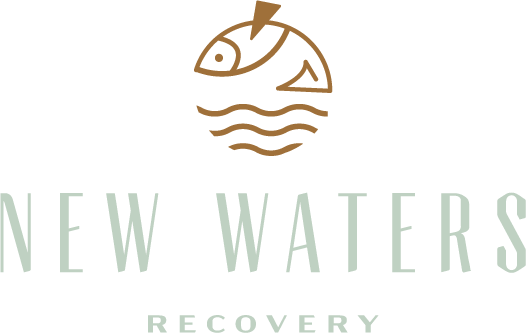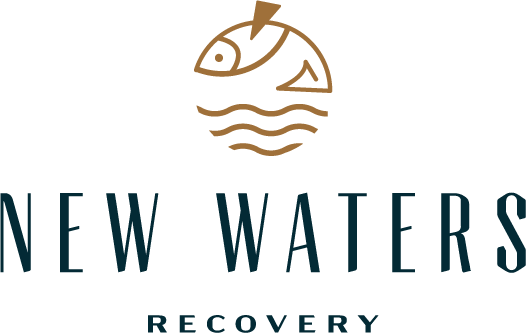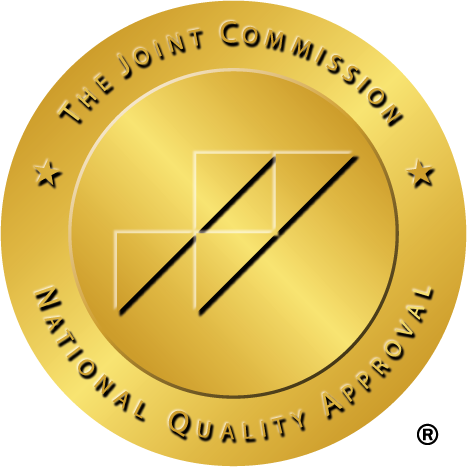Table of Contents
Mental health disorders and substance use disorders or addictions can go hand in hand. Often individuals that are dealing with mental health disorders may turn to substances to help themselves cope and feel better.
Unfortunately, treating mental health disorders and substance use disorders can get more complicated when a patient has both. Comorbidity, or when two different disorders happen at the same time, can mean that it takes longer to recover, or that you need a different approach to therapies and support to really help that individual.
The good news is that understanding the disorders and how they can impact your or your loved ones can make a big difference.
One reason we put together this guide is that rare mental health disorders generally aren’t as well understood as more common disorders like Major Depressive Disorder or Generalized Anxiety Disorder.
But, with the right knowledge about the disorders, how they impact the people who have them, and how each disorder can interact with substance abuse, recovery and healing are possible.
This guide is meant to be a tool for individuals and their loved ones to figure out what’s going on, how to help, and how to seek additional resources to address both the disorder and any substance abuse occurring at the same time.
What Are Some Rare Mental Disorders & How Do They Impact The Individual?
Before we get into the rare mental health disorders and the impacts they can have, let’s talk about some statistics. Knowing how common mental health disorders can be can help destigmatize these illnesses and lead to better acceptance and treatment options.
Roughly 1 in 5 adults in the United States will have a diagnosable mental illness each year. 1 in 20 adults will have a serious illness, and 50% of all lifetime mental illnesses begin by age 14.
Disorders range from things like ADHD which are relatively common, to the rarer disorders we’re going to discuss in this post.
If you or a loved one are dealing with a mental health problem it’s important to remember that you aren’t alone and that mental health disorders are far more common than most people think. There is nothing to be ashamed of.
Good treatment of a mental health disorder can usually make them manageable. There’s no reason you can’t have a normal, happy, healthy life with a mental health disorder. You may just have to take medication or be careful to manage your symptoms and seek support when you need it.
With that in mind, let’s talk about some rare mental health disorders, what they do, and what can be done about them.
PTSD
PTSD or post-traumatic stress disorder is probably the most common disorder we’re going to touch on in this article, but it’s also one of the most important in terms of substance use.
PTSD is the result of trauma and may be caused by a single traumatic event, a series of traumatic events, ongoing or past abuse, and other traumatic situations. People with PTSD are also more likely to also have BPD, which we’ll discuss next.

Roughly 3.6% of people in the United States have PTSD, and it’s common after military service, car crashes, abusive relationships, and many other traumatic events.
People with PTSD may have flashbacks, nightmares, avoidance of certain places/people/subjects, and may have additional mood symptoms like shame, guilt, depression, anxiety, and dissociation/derealization.
In addition to the mood and cognitive symptoms of PTSD, it’s common for people with PTSD to display hypervigilance, or increased awareness of the world around them and avoidance of ‘vulnerable’ situations (looking for exit routes, positioning themselves with their back to a wall, avoiding crowds).
Children with PTSD may develop different symptoms than adults, including behavioral changes, including behavioral regression.
People with PTSD are also at increased risk of substance use as a coping mechanism.
Borderline Personality Disorder
Borderline Personality Disorder (BPD) is less rare than some of the other disorders we’re going to discuss, but it’s clinically significant and people with BPD are at greater risk of substance use disorders because of their symptoms.
People with BPD have intense emotions and may change rapidly or may linger longer than average/appropriate to the situation. BPD, like several disorders on this list, is more common in individuals with a history of trauma. In addition, people with BPD have a harder time getting back to their emotional baseline after their emotions change, regardless of the emotion involved.
Self-harm, suicidal ideation, risk-taking like unsafe sex or reckless driving, and substance use are all relatively common behaviors for people with BPD.
Treatment for BPD usually involves a combination of learning coping strategies, minimizing risk-taking behaviors, therapy, and medication to help manage stress and get better emotional balance.
Dissociative Disorders
Dissociative Disorders describe a cluster of disorders that may be slightly different from one another, but which tend to have similar symptoms and hallmarks. We’ll discuss one of these disorders in more detail a little further down, depersonalization/derealization disorder.
However, Dissociative disorders aren’t always depersonalization/derealization, can be episodic, and tend to be more common after a traumatic event. In some cases, a clinically concerning Dissociative event may only happen once before resolving, or Dissociations may be tied to particular triggers.
Dissociations can cause people to feel like they are not real or that the world around them is not real, and in some cases, both. Dissociative events may cause people to behave abnormally, engage in risk-taking, or shut down, among other symptoms.
Diagnosing dissociation is important because coping strategies, therapy, and medications can all help reduce the prevalence and severity of dissociation.
schizoaffective Disorder
schizoaffective disorder has a lot in common with schizophrenia, though neither condition is very well known. schizoaffective disorder is also rare, with a lifetime prevalence of just 0.3%. Gender doesn’t seem to make a difference in the prevalence of schizoaffective disorder – though men may be diagnosed sooner than women.
This disorder causes hallucinations, and delusions, and may also come with hallmark symptoms of other disorders like depression or anxiety.
Unfortunately, people with schizoaffective disorder are both at greater risk of substance use disorders, and using illicit substances can make the schizoaffective disorder worse and harder to manage. In cases where both schizoaffective disorder and substance use disorder are present, it’s doubly important to seek medical care and treatment for both disorders.
depersonalization derealization Disorder
depersonalization/derealization disorder is relatively rare, but you may have experienced the sensations caused by this disorder even if you’re perfectly healthy.
Someone with depersonalization/derealization disorder will often (sometimes constantly) feel like they are observing themselves from outside of their bodies. They may describe feeling like everything is a dream, or that they aren’t real and neither are their surroundings.
This kind of sensation is actually pretty common as a result of some medications, situations, or taking illicit substances. What makes depersonalization/derealization disorder different is that the sensation is persistent and may not have a specific trigger.
People with this disorder may behave oddly, engage in extreme risk-taking behavior, or have little empathy for others because they don’t feel that anything is real and don’t connect their actions to any meaningful consequences.
Like most disorders, depersonalization/derealization disorder can be managed once it’s diagnosed, but it may take time to find the right combination of medications or therapies to be effective.
Capgras Syndrome
Capgras Syndrome is very rare, but it can also be very distressing to the person with Capgras Syndrome and anyone around them.
Unlike some disorders, Capgras Syndrome is almost always brought on by a separate condition or by an injury. It’s most common in people with schizophrenia, dementia, and epilepsy, and can also occur after a traumatic brain injury, even relatively mild traumatic brain injuries like a mild concussion.

People who have Capgras Syndrome think that someone in their life, maybe several people, have been replaced by an imposter. It’s thought that this syndrome is the result of a disconnect between the person and their memory of their loved one such that interacting with their loved one no longer triggers the same emotions of care and affection.
Capgras Syndrome is manageable, usually by treating any underlying disorders or injuries. Treatments can include the use of antipsychotic medications to reduce feelings that someone has been replaced.
How Rare Mental Disorders Can Play A Factor In Drug/Alcohol Abuse
Mental health disorders of any kind, especially rare mental health disorders, can both make substance use disorders more likely, and can also make it more important to get specialized treatment for all the disorders an individual is dealing with.
One of the reasons it’s so important to get mental health disorders diagnosed and treated as a part of substance use treatment is that the disorders can put you at greater risk of relapsing into your addiction.
It’s common for the symptoms of some mental health disorders to be triggers for substance use disorders and addiction. Rare mental health disorders may be more likely to be triggering because of the nature of the disorder, the difficulty in getting an accurate diagnosis, and because many rare mental health disorders are rooted in trauma and/or cause risk-taking behaviors and dissociation.
Substance use can sometimes seem like a good alternative to experiencing the symptoms of a rare mental health disorder, especially if you’ve tried treatment and not gotten the results you needed in the past.
The problem is that most substances can make rare mental health problems worse. For instance, there is an association between cannabis use and developing schizophrenia, though the exact mechanisms of who will or will not develop schizophrenia aren’t well understood.
Treating an underlying mental health disorder will almost always make treating substance use disorders easier and reduces the odds that you will relapse after entering recovery.
Struggling With A Rare Mental Disorder And/Or Substance Abuse: Here’s How To Get The Help You Need & Deserve
If you’re struggling with your mental health, substance use, or both, it’s important to reach out to medical care providers for advice and options about how to move forward.
Your primary care provider may recommend therapy, group therapy, support groups, rehabilitative centers or care provers, or a combination of different treatments. From there you’ll need to do some research, find out which options may be covered by insurance, which care providers have programs suited to your needs, and which options seem best to you.
Once you’ve decided what kind of treatment you’re looking for, it’s important to reach out to the care provider and find out what requirements they have and what kind of availability they offer.
For instance, most rehabilitation centers like New Waters have intake criteria and limited space for patients. Those limitations help ensure that people get the kind of treatment they need, are matched with the right programs, and that they get enough individualized treatment and attention from the on-site professionals.
Remember, if planning treatment or even just reaching out for help seems like too much for you to handle, you can always reach out to people in your support network for help taking the next steps.
Recovery is always possible. It’s just a matter of finding the right combination of techniques and supports to fit your needs.
Sources:
New Waters Recovery has strict sourcing requirements, relying on sources from scholarly research and peer-reviewed studies, as well as those from medical associations. We keep away from using third-party references as our sources. In order to learn more about how we choose our sources and our sourcing guidelines, please reference our Editorial Policy.
- Concordia St. Paul. 10 Rare Mental Health Conditions. Published July 10, 2020. Accessed August 2, 2022. https://online.csp.edu/resources/article/10-rare-mental-health-conditions/
- National Alliance On Mental Health. Posttraumatic Stress Disorder. Published December 2017. Accessed August 2, 2022. https://www.nami.org/About-Mental-Illness/Mental-Health-Conditions/Posttraumatic-Stress-Disorder
- National Alliance On Mental Health. Borderline Personality Disorder. Published December 2017. Accessed August 2, 2022. https://www.nami.org/About-Mental-Illness/Mental-Health-Conditions/Borderline-Personality-Disorder/
- National Alliance On Mental Health. schizoaffective Disorder. Accessed August 2, 2022. https://www.nami.org/About-Mental-Illness/Mental-Health-Conditions/schizoaffective-Disorder
- National Library Of Medicine. Lifetime Prevalence And Age-Of-Onset Distributions Of DSM-IV Disorders In The National Comorbidity Survey Replication. Published June 6, 2005. Accessed August 2, 2022. https://pubmed.ncbi.nlm.nih.gov/15939837/
- Substance Abuse And Mental Health Services Administration. Key Substance Use And Mental Health Indicators In The United States: Results From The 2020 National Survey On Drug Use And Health. Published October 2021. Accessed August 2, 2022. https://www.samhsa.gov/data/sites/default/files/reports/rpt35325/NSDUHFFRPDFWHTMLFiles2020/2020NSDUHFFR1PDFW102121.pdf
- Hamilton I., Monaghan M. Cannabis: Increased Schizophrenia Risk In Young People Linked To Both Low And High Use. Medical Press. Published January 26, 2022. Accessed August 2, 2022. https://medicalxpress.com/news/2022-01-cannabis-schizophrenia-young-people-linked.html
New Waters Recovery Editorial GUIDELINES
At New Waters Recovery, we take your health and wellness seriously. We have a thorough process in place to ensure the integrity of information that is displayed on our website. All content published to our site undergoes a rigorous medical review by a doctorate level clinician to ensure medical accuracy. Read More About Our Process





